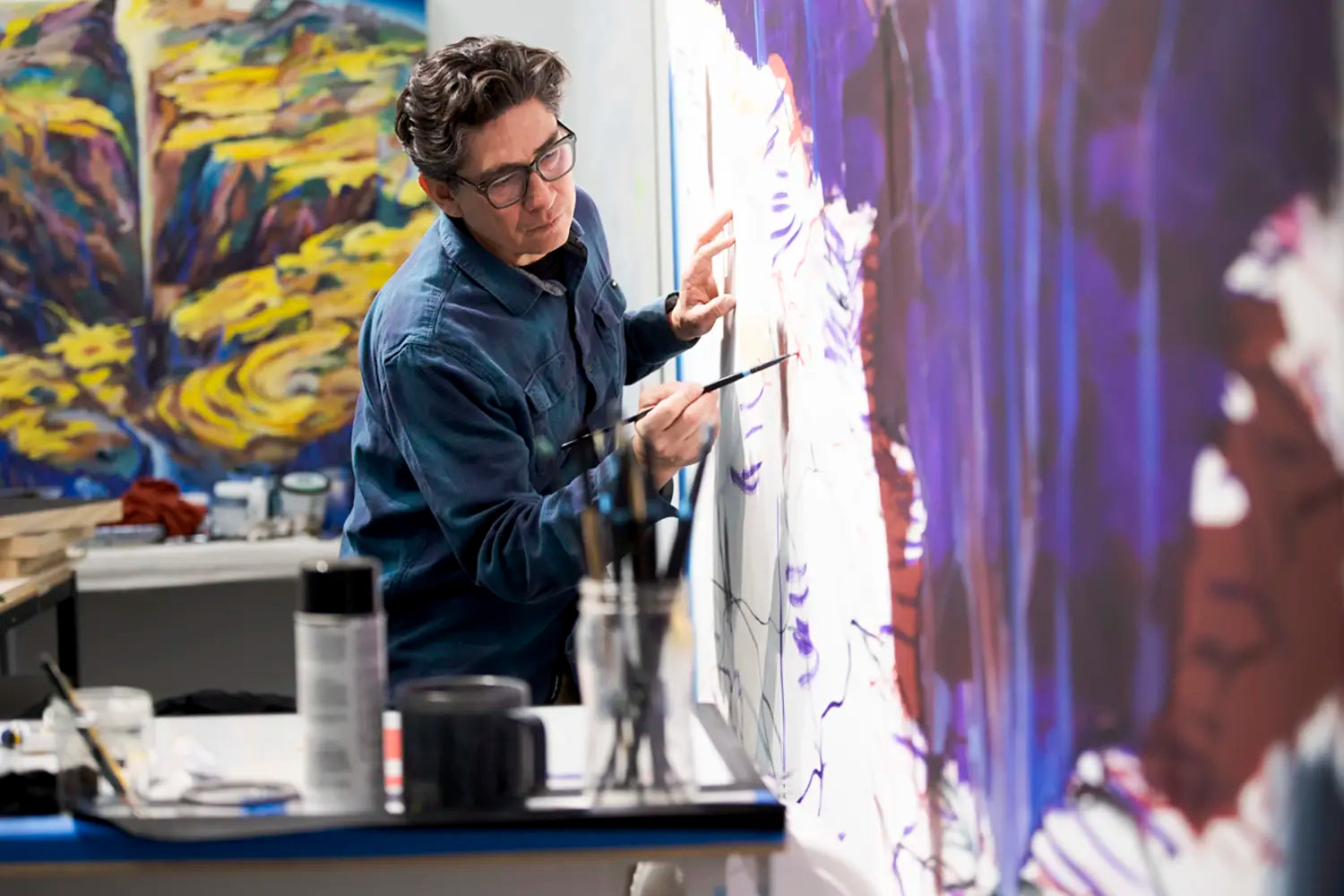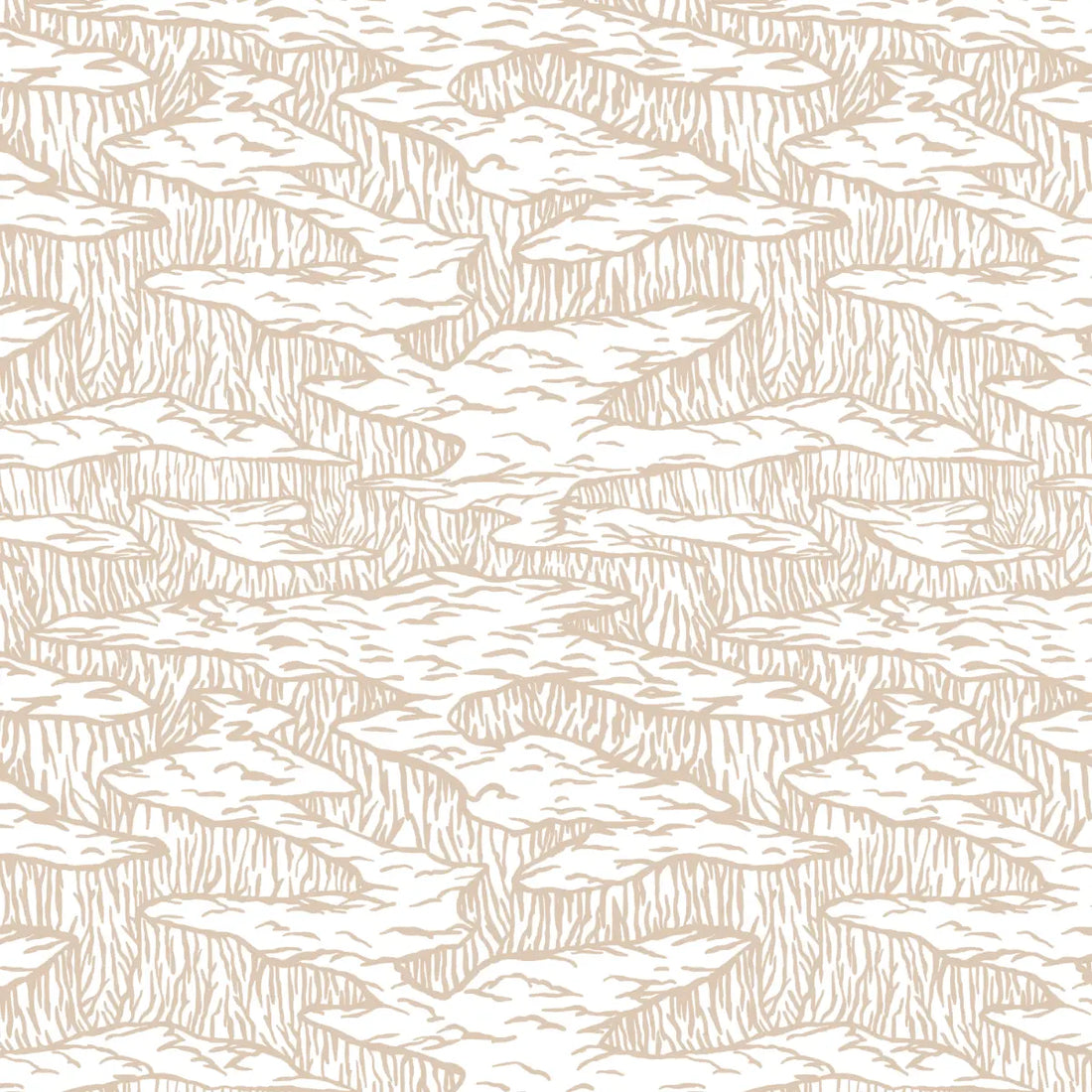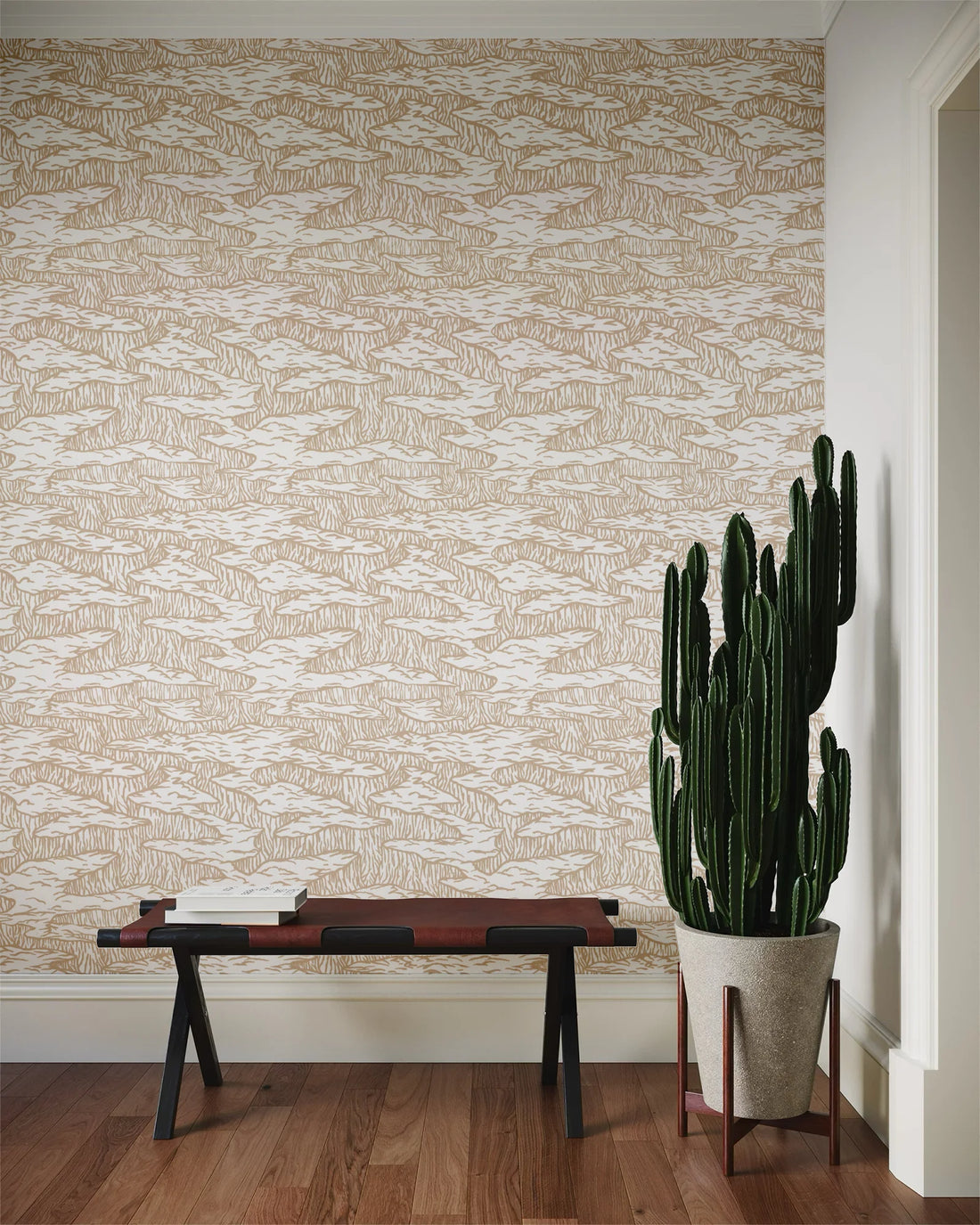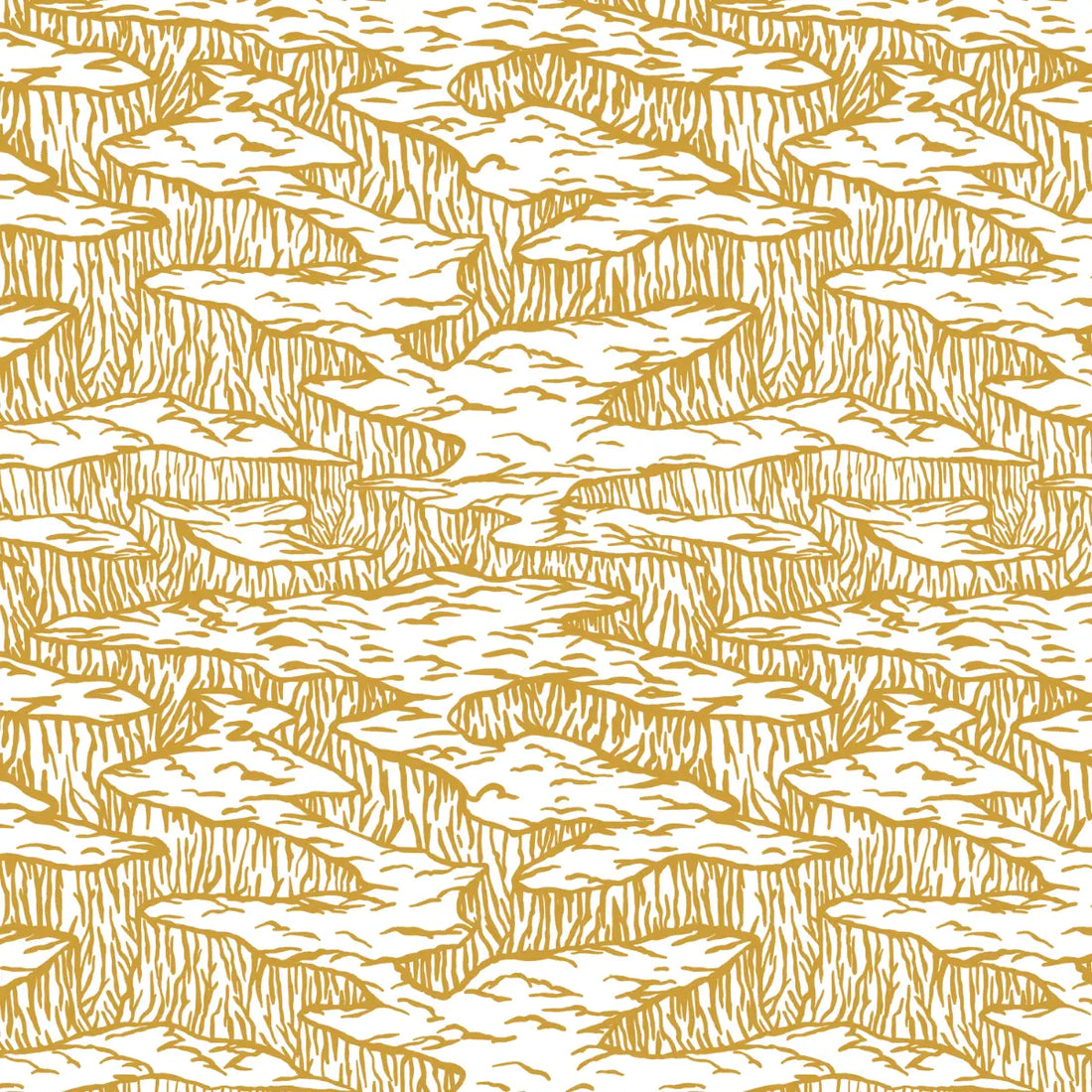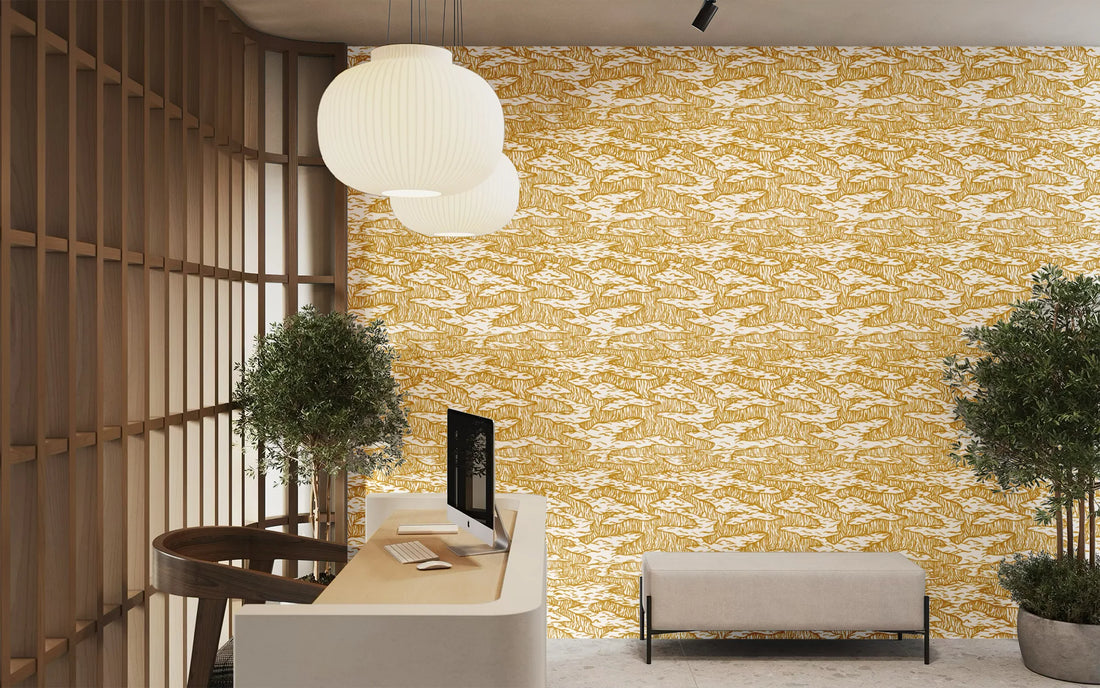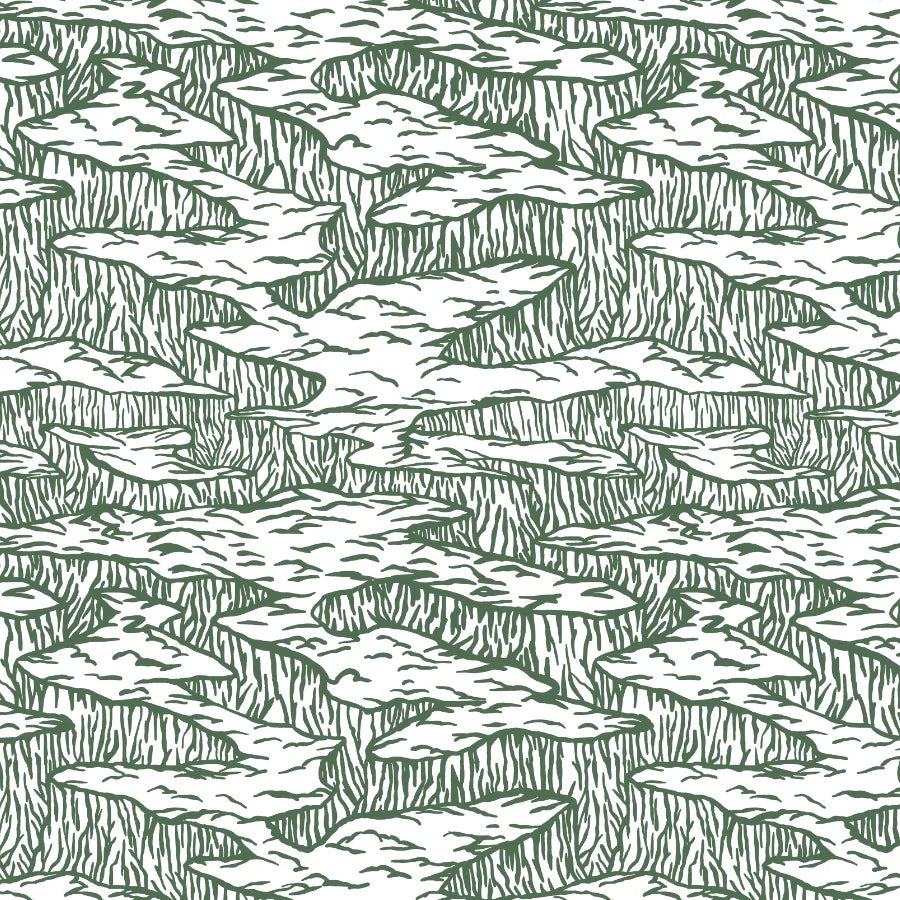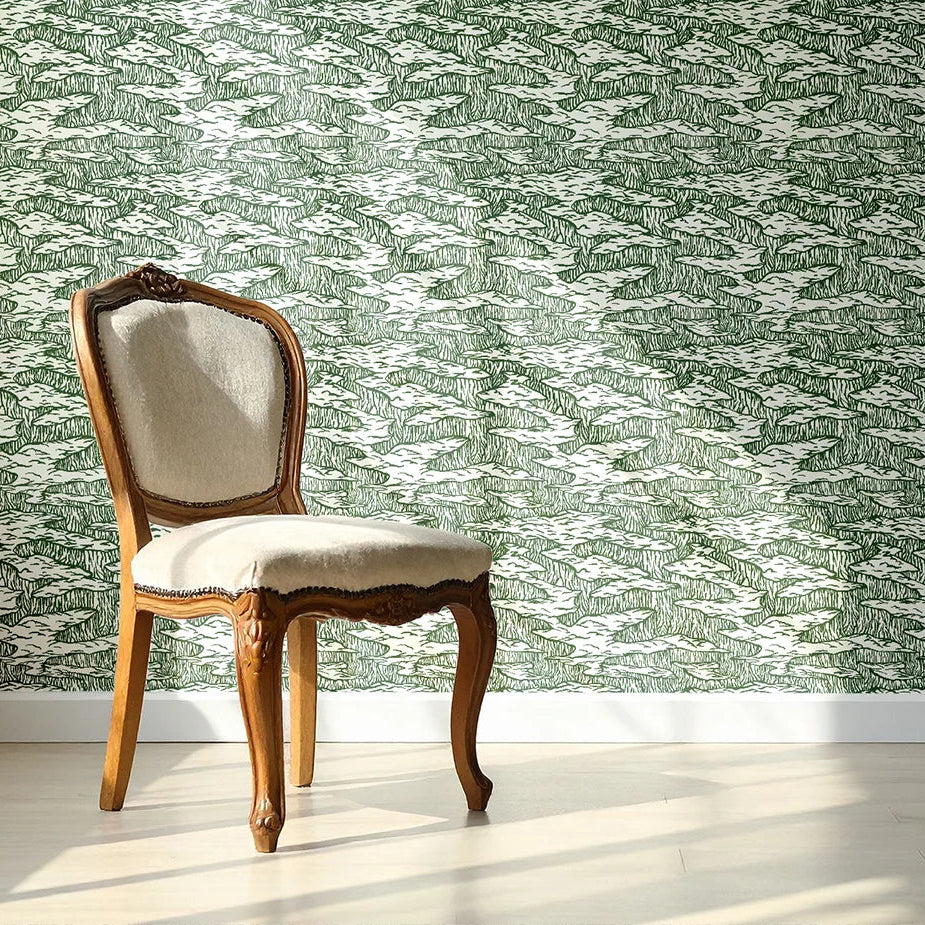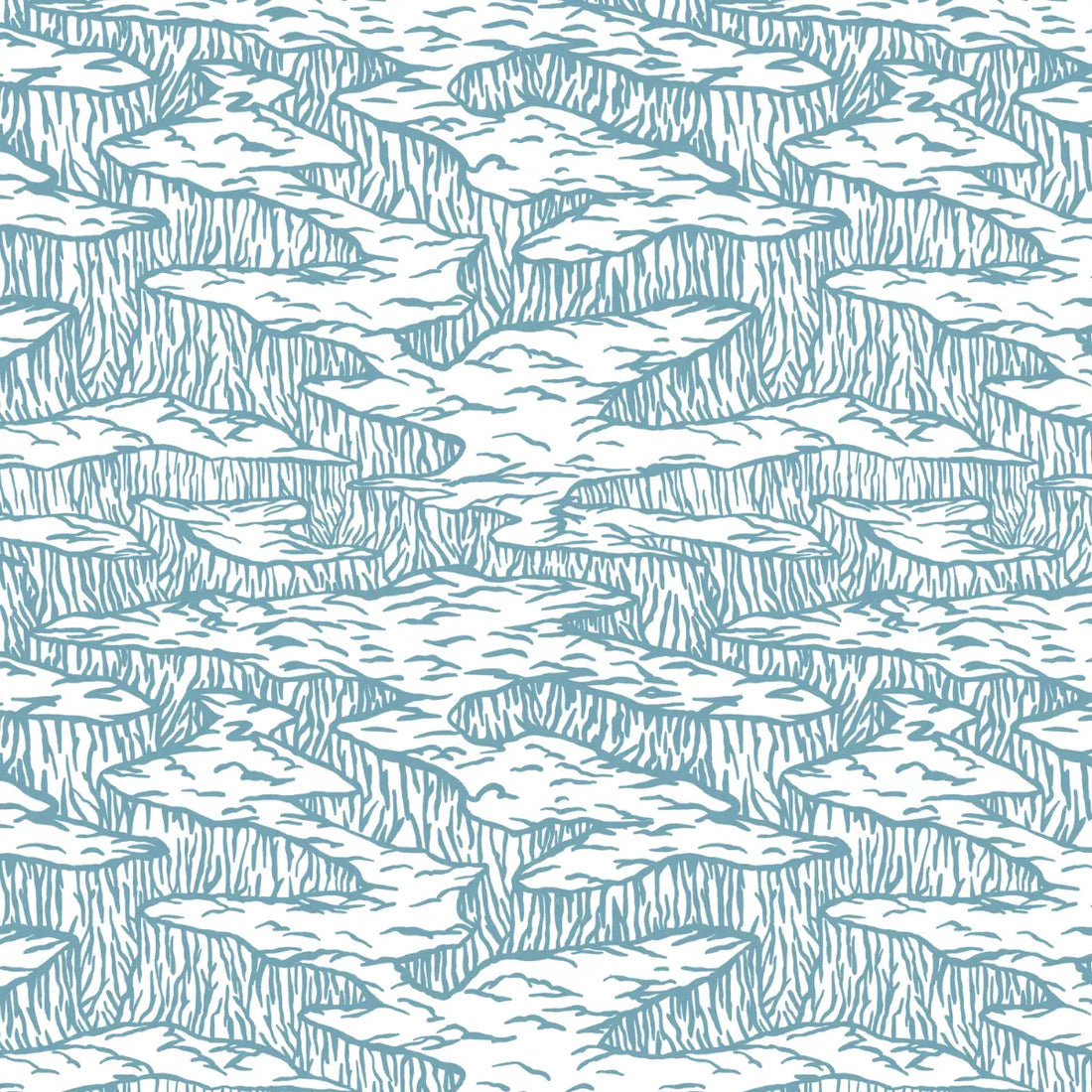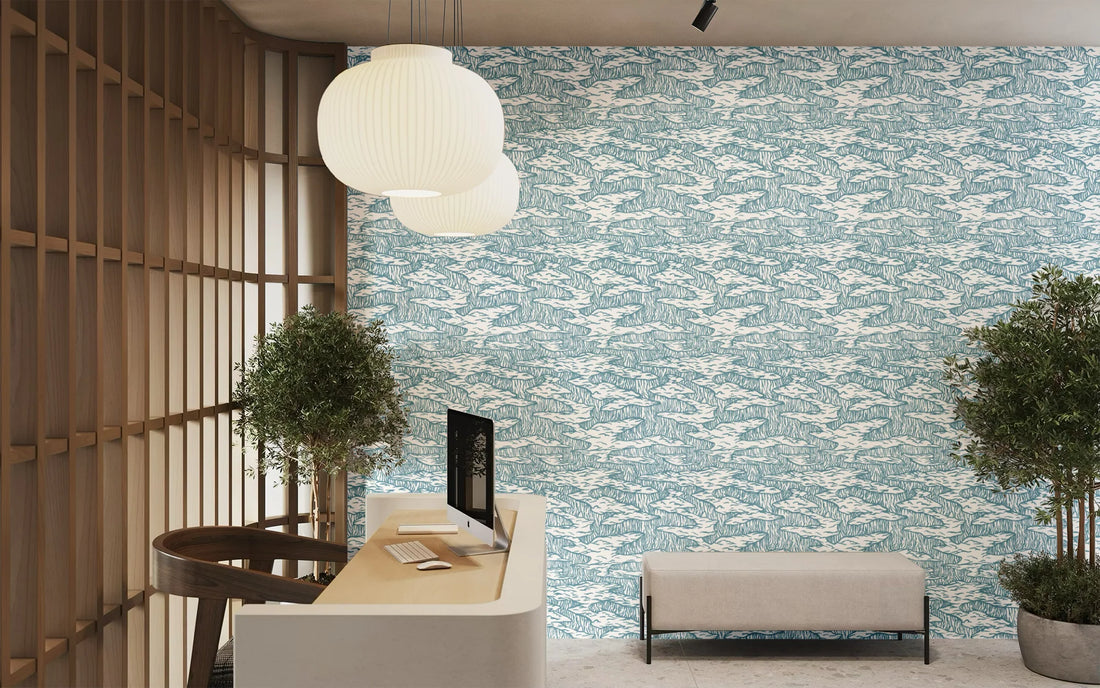"It's through painting that I found my way into understanding art and the process of making art as a meaningful way to connect to the world around me."
STEVEN YAZZIE
-
Art Beyond Boundaries
In the deserts and canyons landscapes of northern Arizona where Steven Yazzie spent his childhood, the boundaries between earth and sky, past and present, the natural and human worlds intersect in ways that continue to shape his artistic vision. For this multidisciplinary artist of Navajo, Laguna Pueblo, and European descent, the studio isn't confined to four walls – it's the vast expanse of land, community, and experience that surrounds him.
"I'm a multidisciplinary artist. I work in paint, installation, video, and community-based work," Yazzie explains. "I fell into every other discipline like I fell into painting. I just had a genuine interest in it. I was curious about the process or the look of something."
Between Land and Memory
Yazzie's relationship with the land was shaped by his youth in the northern region of the Navajo reservation in Arizona – a place of profound contrasts. Growing up near uranium and coal mining operations, he experienced both the sacred beauty of ancestral landscapes and witnessed their exploitation. These early experiences of environmental duality would later become a central theme in his artwork, where he explores the complex relationship between humans and the land they inhabit.
-
The Journey of an Artist
Yazzie's artistic journey evolved through distinct chapters of his life. After serving honorably with the United States Marine Corps during the Gulf War from 1988-92, he found his way to art in his mid-twenties, drawn to its potential for personal expression and storytelling.
"I started in my mid-20s, and I began painting because I really enjoyed it," he shares. "It helped me express myself, and it helped me tell the stories of where I came from and the things that I had been through."
His early work was figurative and semi-autobiographical, exploring issues of place and identity related to his mixed-race background. Through painting, he found his way into understanding art as a meaningful connection to the world around him. Over time, his interests in process and form pushed him toward abstraction, with the natural world becoming his reference point.
His work has earned international recognition, with exhibitions at prestigious institutions including the National Gallery of Art in Washington D.C., Museum of Modern Art in New York, Denver Art Museum, and the National Gallery of Canada. He has been selected for the 2025 Sharjah Biennial 16 in UAE and has held residencies at institutions including the Denver Art Museum and Skowhegan School of Painting and Sculpture.
-
Art and Community
At RedLine Contemporary Art Center in Denver, Yazzie serves as a resource artist, mentoring younger artists and sharing not just technical skills but the deeper philosophical and cultural aspects of artistic creation. This role allows him to extend his practice beyond his personal work, nurturing the next generation of creative voices while encouraging them to find their own connections to heritage and place.
His paintings capture the vibrant energy and spirit of the landscape, creating rich panoramas that reflect both the physical terrain and its deeper cultural significance. His recent series of abstract landscapes, which he playfully terms "hallucinogenic abstraction," creates dreamlike environments that capture the essence rather than the literal depiction of places.
"I want to capture the electricity and vibrancy of our changing world," Yazzie explains. "There's something about that space in between where something is going to happen or something changes. That liminal space is always there, and it's fascinating to try to capture it in paint."
Indigenous Perspectives and Sustainability
Yazzie's work is deeply informed by Navajo traditions and stories. The sacred colors and symbols of his heritage appear throughout his work, including the rainbow motif that represents protection in Navajo culture. "The rainbow is significant as a protector... it's that symbol of protection that we carry, that surrounds us, regardless of the state of the land."
His concern for sustainability stems from witnessing environmental impacts on Native lands firsthand. In his work, he explores the interconnectedness of environmental and social issues while drawing on Navajo concepts of harmony and balance. -
Before beginning his major works, Yazzie dedicates time to painting his "Infinite Canyons" series – a meditative practice that helps him align his energy and intentions. This ritual reflects the Navajo concept of "walking in beauty," a philosophy that extends beyond aesthetic appreciation to a way of living in harmony with the world. Like traditional weavers who ensure their intentions are pure before beginning a rug, Yazzie creates from a place of balance and respect.
This integration of traditional knowledge with contemporary environmental concerns creates work that speaks to both indigenous and universal experiences of place, responsibility, and stewardship.
Looking Forward
When invited to adapt his work for wallpaper, particularly his "Infinite Canyons" series, Yazzie embraced the opportunity as a way to bring his art into everyday spaces. "When I was invited to show my work in the format of wallpaper, my first thought was 'why not?'" he explains. "It broadens access to my art and helps me share my message with a wider audience."
The format perfectly suited his vision of continuous, flowing landscapes that celebrate the beauty and power of the natural world. The "Infinite Canyons" series, which began as a meditative practice, translates naturally to the repeating patterns of wallpaper, creating immersive environments that transform living spaces. In this way, his art extends beyond gallery walls to become part of the daily experience of those who live with it, fostering a deeper, ongoing relationship with the viewer.
In every medium he touches—whether paint, film, installation, or community project—Yazzie draws from Indigenous experiences, learning, and wisdom to foster dialogue about our relationship with the land and each other.
“This world doesn't need us, really. As humans, we take ourselves so seriously. We think it's all about us. This world was fine without us before, and maybe it will be another time."
STEVEN YAZZIE


